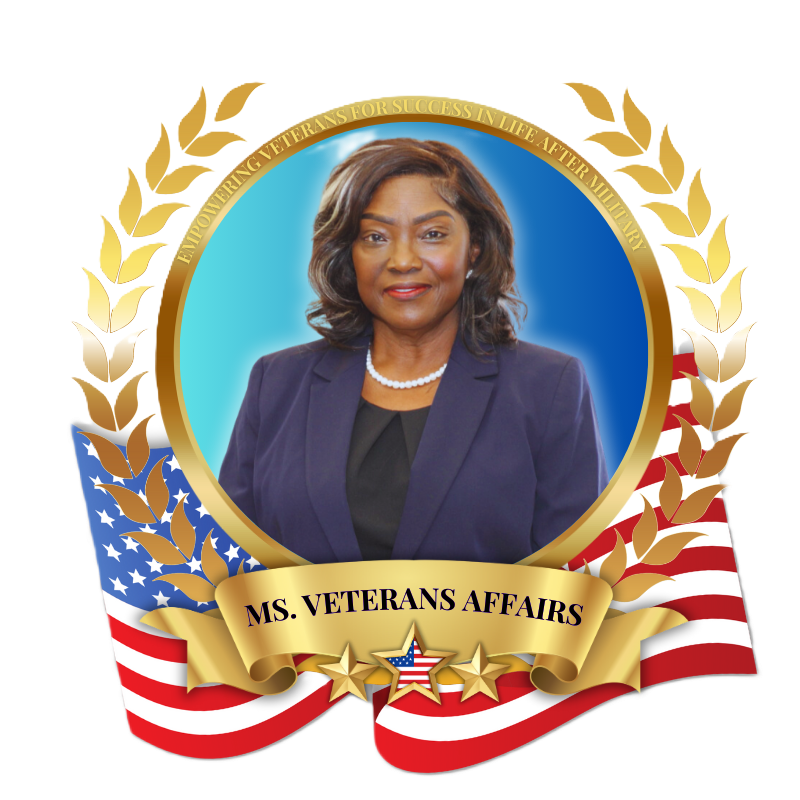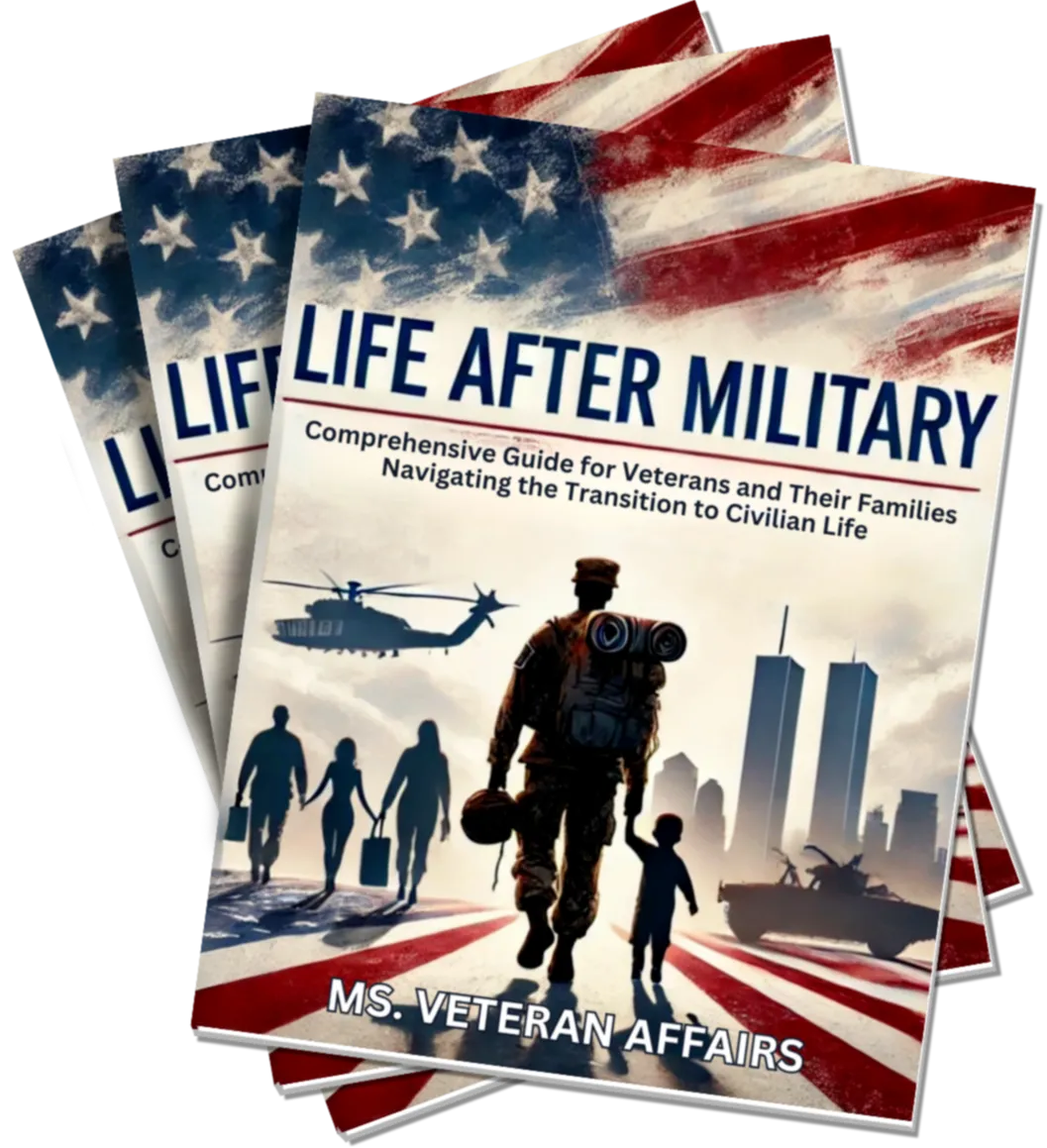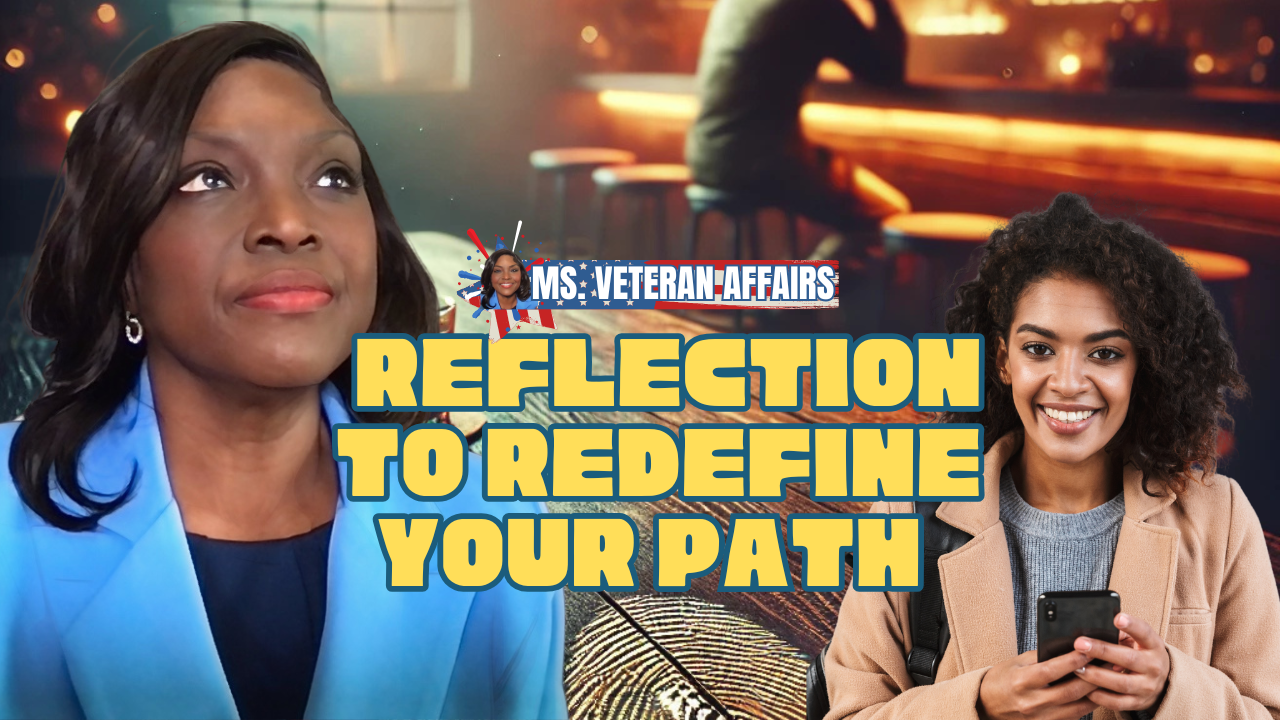Redefining Identity After the Military: Ms. Veteran Affairs' Guide
Apr 22, 2025
 Ms. Veteran Affairs on Redefining Identity After the Uniform Comes Off
Ms. Veteran Affairs on Redefining Identity After the Uniform Comes Off
Jaye Maxine gripped the edge of her kitchen table, her pulse quickening. She didn’t know why she felt this way—why the simple sight of her discharge papers, neatly folded and sealed, filled her with such unease. It wasn’t the battlefield, but the uncertainty ahead felt just as perilous.
Her uniform hung in the closet, pressed and pristine, but now it seemed to mock her. For years, it was her armor, her identity, her purpose. Now, without it, who was she?
The knock at the door startled her. She wasn’t expecting anyone, but when she opened it, there stood Ms. Veteran Affairs—a friend of a friend who seemed to know just when to show up.
“Jaye, I hope you don’t mind me stopping by,” Ms. Veteran Affairs said, her warm smile disarming Jaye’s tension. “I heard you could use a little company.”
Jaye hesitated, then stepped aside to let her in. “I don’t even know where to start,” Jaye admitted as they sat at the table, the weight of her fears evident in her voice.
Ms. Veteran Affairs nodded, her expression empathetic. “It feels like you’re standing at the edge of a cliff, doesn’t it? Like one wrong step could send everything tumbling.”
Jaye’s shoulders relaxed slightly. “Exactly that. How did you know?”
“Because I’ve been there,” Ms. Veteran Affairs said gently. “Let’s talk about how you can find your footing again.”
Acknowledging the Transition
“The first thing you need to understand,” Ms. Veteran Affairs began, “is that it’s okay to grieve what you’re leaving behind. The uniform—it’s more than clothes. It’s a symbol of who you’ve been and everything you’ve achieved. Losing that feels like losing a part of yourself.”
Jaye nodded, her eyes fixed on the table.
“But,” Ms. Veteran Affairs continued, “it’s also an opportunity. You get to decide who you want to be next. It’s scary, but it’s also exciting if you let it be.”
Identifying Strengths and Passions
“Let’s take a step back,” Ms. Veteran Affairs said, sliding a notebook across the table. “I want you to write down three things you loved about your time in the service. What made you proud?”
Jaye thought for a moment, then began to write. Leadership. Problem-solving. Camaraderie.
“Now,” Ms. Veteran Affairs said, “think about how those skills can carry into civilian life. You led teams—imagine doing that in a corporate setting or a community project. Problem-solving? Companies pay big bucks for people who can think on their feet. And camaraderie? That’s something you can find again, in new ways.”
Building a Support System
“The worst thing you can do,” Ms. Veteran Affairs said, leaning in, “is try to go through this alone. You need a network—friends, family, fellow veterans who understand. It’s not a weakness to ask for help. It’s strength.”
Jaye smiled faintly. “I’ve never been good at asking for help.”
“Neither was I,” Ms. Veteran Affairs admitted. “But when my husband and I transitioned out of the military, we learned the hard way. Community saved us. Find a local veterans’ group or even online spaces where people share the same experiences.”
Trying New Roles
“What’s one thing you’ve always wanted to try but never had the chance?” Ms. Veteran Affairs asked.
Jaye hesitated. “I used to love painting. I haven’t picked up a brush in years.”
“Then maybe it’s time to start,” Ms. Veteran Affairs encouraged. “Sometimes rediscovering old passions can spark something new. And don’t stop there—try other things. Volunteer. Take a class. Explore career paths you never considered. Every step you take helps you figure out who you are now.”
Celebrating Growth
As their conversation continued, Jaye felt something shift. The anxiety was still there, but it wasn’t as sharp. Ms. Veteran Affairs made it clear: redefining her identity wasn’t about erasing the past but building on it.
“Remember,” Ms. Veteran Affairs said, standing to leave, “life after the military isn’t the end. It’s the next chapter. And you get to write it however you want. Don’t rush it—just take it one day at a time.”
Jaye looked at the notebook, now filled with ideas and plans. For the first time in months, she felt a spark of hope.
“Thank you,” she said.
Ms. Veteran Affairs smiled. “You’re not alone, Jaye. And you’ve got this.”
Discussion Questions:
- How does Jaye’s initial sense of danger and uncertainty mirror the emotional challenges many veterans face during the transition to civilian life?
- Why is it important to acknowledge and grieve the loss of military identity before embracing a new chapter?
- How can identifying transferable skills, like leadership or problem-solving, help veterans redefine their purpose in civilian life?
- What role does a strong support system play in overcoming the emotional and practical challenges of transitioning out of the military?
- Why is exploring new roles, hobbies, or career paths an essential step in discovering a new identity and building a fulfilling post-military life?
Join our community today!
Gain fresh insights every week—concise, impactful lessons designed to elevate your thinking, enhance self-awareness, and empower purposeful growth.
We hate SPAM. We will never sell your information, for any reason.












